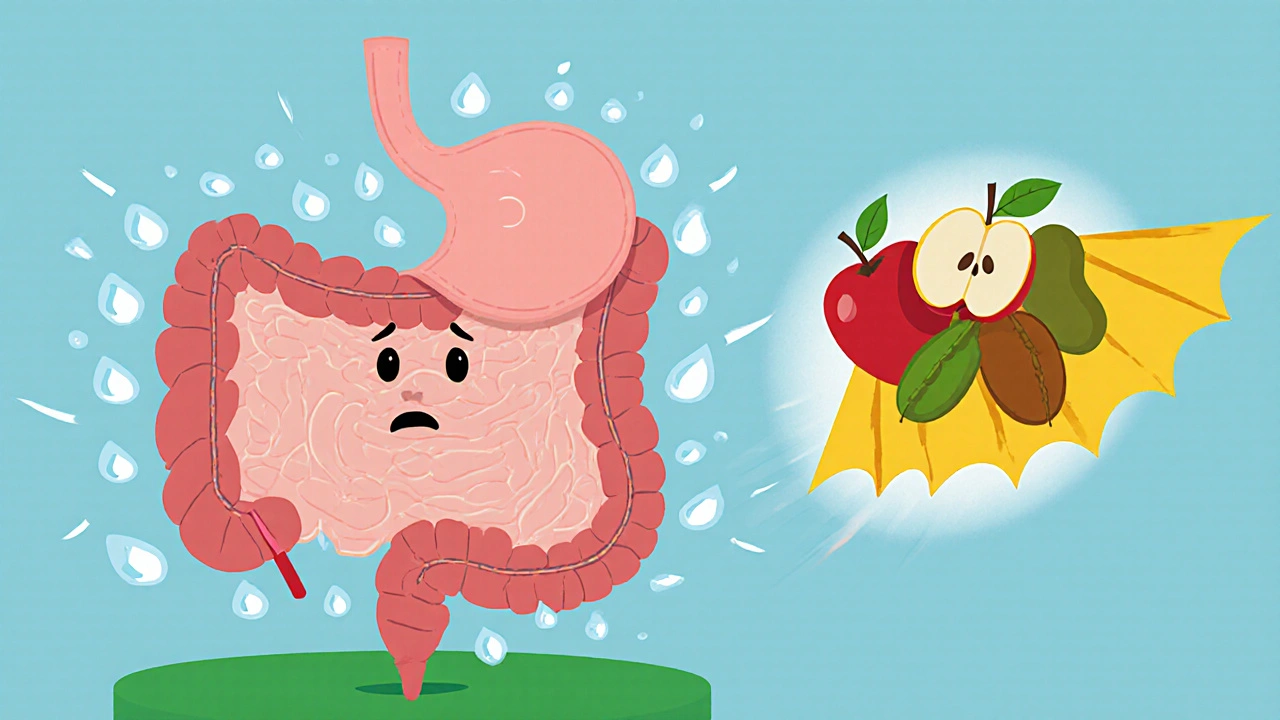Acute Diarrhea: Quick Facts and How to Manage It
When dealing with Acute Diarrhea, sudden onset of frequent, watery stools that can develop over hours, the body can quickly lose water and salts. Also known as fluid loss, the rapid depletion of bodily fluids, it often stems from Infection, bacterial, viral, or parasitic agents that upset gut function. Prompt attention is key because Dehydration, a state where the body lacks enough water to function properly can set in within a day, especially in children and older adults. Managing the condition usually involves Antidiarrheal Medication, drugs that slow intestinal movement and reduce stool frequency and careful Diet Modification, adjusting food and fluid intake to restore electrolytes. Below we break down what triggers the problem, how to assess severity, and which steps work best for fast relief.
What Causes It and When to Seek Help
Acute diarrhea usually follows one of three pathways: a contagious infection, a reaction to a new medication, or a sudden dietary change that overloads the gut. Infections like Giardia, norovirus, or certain strains of E. coli release toxins that irritate the intestinal lining, leading to the rapid loss of fluid. Medications such as antibiotics or non‑steroidal anti‑inflammatory drugs can disrupt the normal gut flora, creating an imbalance that results in watery stools. Lastly, high‑sugar or high‑fat meals can draw water into the intestine, worsening the situation. The body responds with electrolyte imbalance—low sodium, potassium, and bicarbonate—which can cause muscle cramps, weakness, or even heart rhythm issues. A simple rule of thumb: if you notice more than three watery stools in an hour, signs of dizziness, or reduced urine output, it’s time to act. Monitoring these indicators helps decide whether home care suffices or a medical professional should be consulted, especially for infants, pregnant women, or anyone with chronic health conditions.
Treating acute diarrhea isn’t just about stopping the stools; it’s about re‑hydrating and restoring the body’s chemistry. Oral rehydration solutions (ORS) combine water, glucose, and electrolytes in ratios proven to improve absorption. In many cases, over‑the‑counter antidiarrheals like loperamide can be used, but they’re not appropriate for infections that rely on flushing pathogens out of the gut. That’s why our site offers detailed drug comparison guides—like the Motrin vs alternatives guide and the Coumadin comparison—so you can see which medicines are safe to pair with rehydration therapy. Probiotic‑rich foods such as yogurt or kefir can help rebuild healthy gut bacteria after a course of antibiotics, while a low‑FODMAP or bland BRAT diet (bananas, rice, applesauce, toast) eases the workload on the intestines. Staying ahead of dehydration, watching for electrolyte shifts, and choosing the right medication are the three pillars of effective management.
Below you’ll find a curated list of articles that dive deeper into each aspect mentioned here. From step‑by‑step guides on buying cheap generic medications safely to science‑backed explanations of how enzyme deficiencies can trigger gut issues, the collection is designed to give you practical tools right now. Whether you need to compare antidiarrheal options, learn how to keep fluids in check, or understand the role of diet in preventing recurrence, the posts that follow cover a wide range of real‑world scenarios. Use them to build a personalized plan, stay informed, and get back to feeling normal as quickly as possible.

How Fiber Helps Prevent and Treat Acute Diarrhea
Learn how fiber prevents and treats acute diarrhea, the best types to use, dosage tips, and when to see a doctor.
Read More